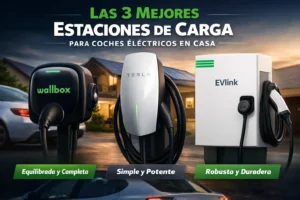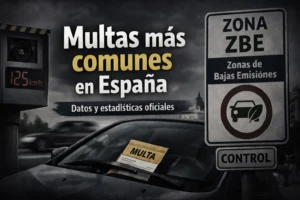
What is TPMS and why is it essential for your car? Complete guide 2025
In a world where driving safety and efficiency are key, the TPMS (Tire Pressure Monitoring System) has become a fundamental component of modern cars. In this article, I explain what TPMS is, how it works, the different types available, and why you should pay attention to it if you don't already use it.
What is TPMS?
The TPMS is an electronic system that monitors tire pressure in real time. Its main function is warn you if the pressure in any tire drops below the recommended level, which can be dangerous for both vehicle safety and fuel consumption.
Since 2014, all new cars in the European Union must have it installed by law.
Types of TPMS
TPMS Direct
This type of system uses sensors mounted inside each tire which directly measure air pressure. The data is sent to a control unit that displays the information on the car's dashboard.
✅ High precision
✅ Immediate detection
❌ More expensive to maintain (requires battery in sensors)
Indirect TPMS
It works using the ABS and ESP sensors. It measures the difference in wheel rotation speed: when a wheel has low pressure, it rotates differently, and the system detects this.
✅ More economical
✅ No additional sensors required
❌ Less precise
❌ It may take time to detect pressure loss
What happens if the TPMS fails or is damaged?
When the system detects an error or cannot read the sensors, a warning light is turned on. warning light on the car dashboard, usually a yellow tire-shaped icon.
In this case:
Check the pressure manually with a pressure gauge.
Make sure there are no damaged sensors.
You may need a system reset from the car menu or with an OBD2 device.
Important: If your car comes with TPMS as standard and it doesn't work, you won't pass the MOT in many European countries, including Spain.
Real benefits of having a working TPMS
Security: prevents accidents due to blowouts caused by low pressure.
Saving: reduces fuel consumption by maintaining optimal pressure.
Durability: extends the life of tires.
Comfort: You don't need to manually check the pressure every week.
Best DIY External TPMSs to Install in 2025
Does your car not have a factory TPMS or is the original system damaged? There are options. universal and portable that you can easily install yourself. Many of them include solar screens, mobile apps and audible alerts.
Discover our selection of The 5 Best External TPMS for 2025 in this specialized article.
Frequently Asked Questions (FAQ)
Do all cars have TPMS?
No. It's only mandatory on new cars since 2014. If your car is older, it may not have it.
Can I install a TPMS if my car doesn't have one?
Yes. There are external TPMS kits that easily install on tire valves or connect via Bluetooth.
Does TPMS replace manual pressure checking?
Not 100% %. It's helpful, but it's always a good idea to check the pressure with a gauge at least once a month.
Does TPMS work with winter or spare tires?
It depends on the type of system. Direct sensors require reconfiguration or replication in new tires.
Is it legal to disable the TPMS? How many of these cars are manufactured?
No. If the system is factory-fitted, it must be operational to pass technical inspections (such as the MOT).
Share:
Table of contents
More entries
Send a message




One Response